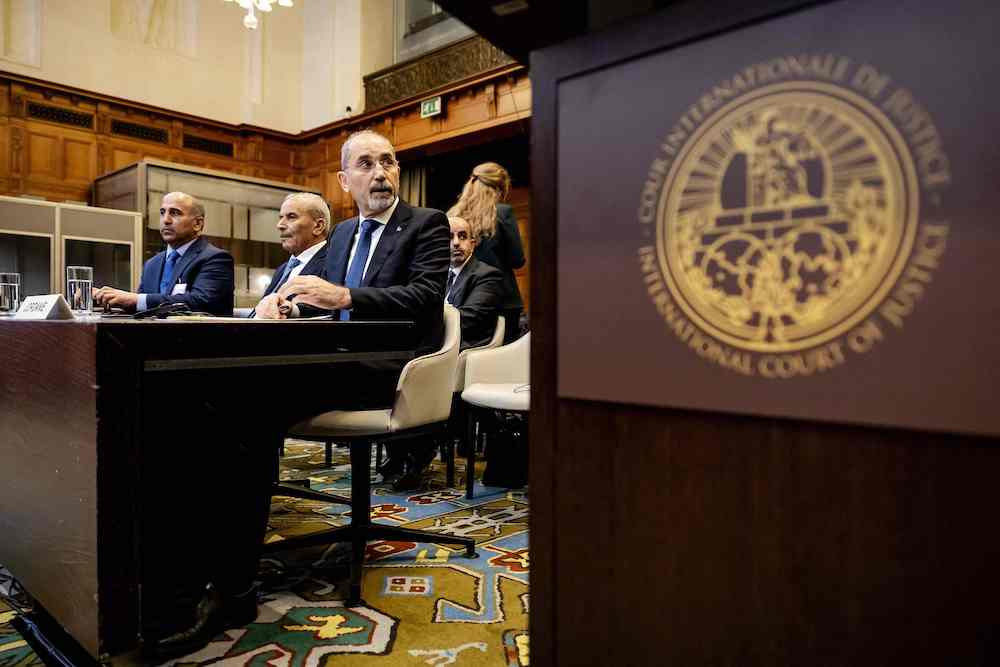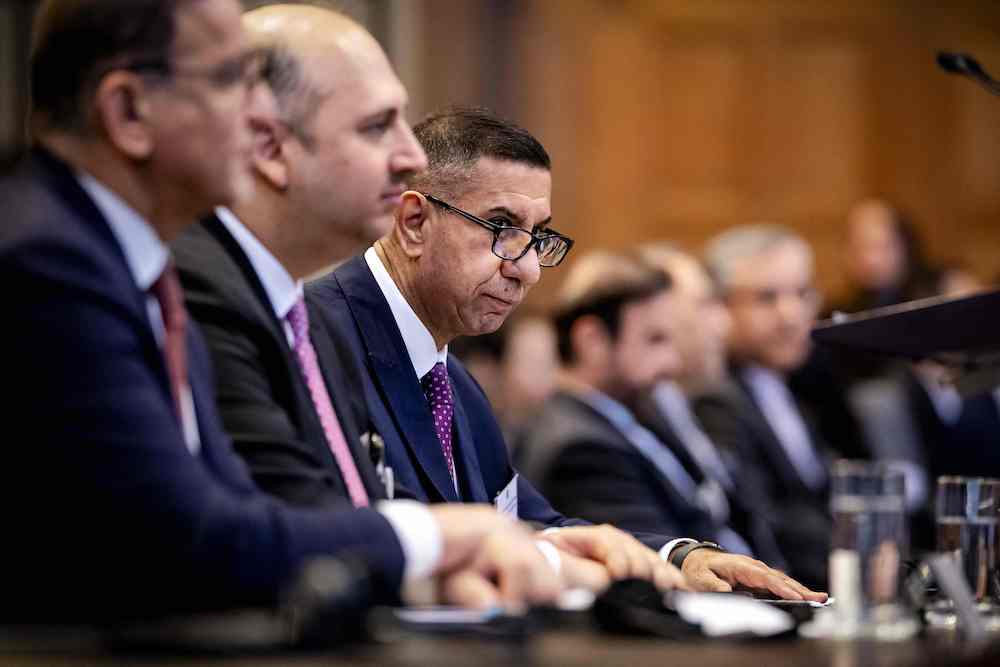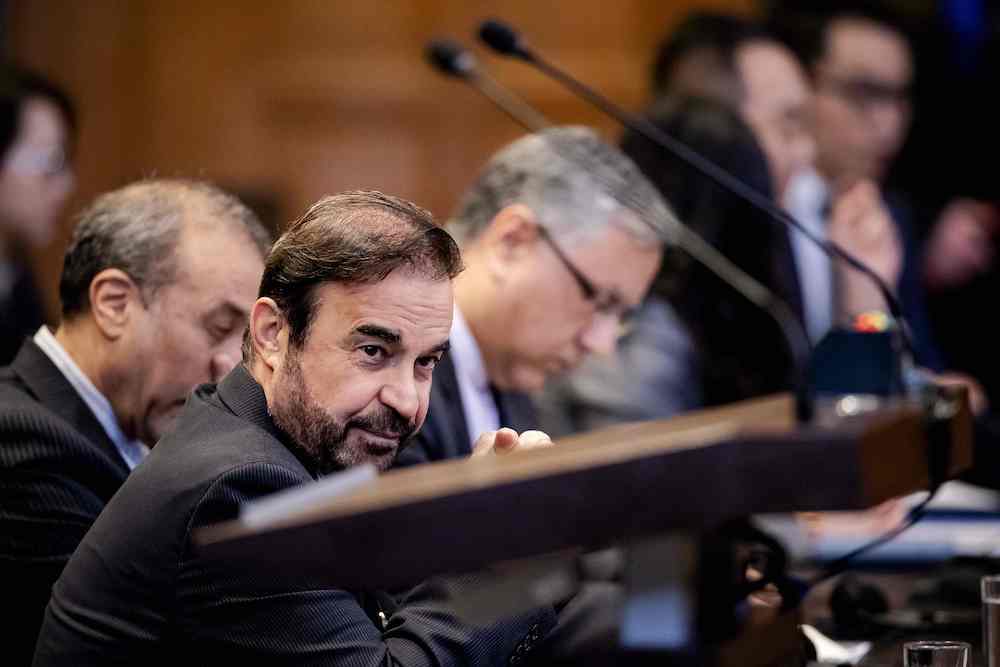The International Court of Justice, the UN’s top court, on Thursday continued its hearing from dozens of states and three international organizations who question the legality of the Israeli occupation of Palestinian territories.
Representatives from countries including China, Iran, Iraq, Japan, Jordan, Kuwait, Lebanon and Libya were expected to deliver their positions during the third day of the hearing at the ICJ, also known as the World Court.
Speakers from the UAE, Egypt and Saudi Arabia have already demanded Israel end its occupation of the Palestinian territories, with the Kingdom’s envoy to the Netherlands Ziad Al-Atiyah stating Israel’s continued actions were legally indefensible.

Ahmad Ziadat, Minister of Justice of Jordan, center, and Ayman Safadi, right, Deputy Prime Minister and Minister of Foreign Affairs of Jordan, at the International Court of Justice hearing in The Hague. (ANP/AFP)
Ayman Safadi, Deputy Prime Minister and Minister of Foreign Affairs of Jordan, said that “Israel is violating the rights of Muslims and Christians to the freedom of worship by banning Muslims from entering Al-Aqsa Mosque and not protecting priests from humiliation and abuse from Israeli extremists.”
Safadi said that the “occupation was unlawful, inhumane and it must end.”
“Israel has been systematically consolidating the occupation, denying the Palestinians’ rights to self-determination.”
Safadi closed his remarks, saying “Palestinians are being killed in the hundreds every day in Gaza and in the West Bank because Israel is not being held accountable for its war crimes and violation of international law… rule that the Israel occupation, the source of all evil, must end.”

Hayder Shiya Al-Barrak, center, ambassador and head of the legal department of the Ministry of Foreign Affairs of Iraq. (ANP/AFP)
Hayder Shiya Al-Barrak, ambassador and head of the legal department of the Ministry of Foreign Affairs of Iraq, called on the ICJ to stop the “systematic killing machine” against the Palestinian people and the end of “mass murder” and “genocide.”
Al-Barrak talked of Israel’s “barbaric acts”, including “air strikes and rocket attacks targeting civilians.”
“These acts constitute war crimes executed with a criminal intent” and are serious violations of the laws of war, the Iraqi representative said, and added that Israel “must be held accountable”.

Reza Najafi, Iran’s Deputy Foreign Minister for Legal and International Affairs. (ANP/AFP)
The Iranian representative said the Israeli occupation force continuously violated Palestinians right to self-determination.
“The establishment of the Israeli regime was done through a violent process which involved the forcible displacement of native Palestinian people to create a majority Jewish colony in line with the Zionist movement,” Reza Najafi, Deputy Foreign Minister for Legal and International Affairs said.
Najafi listed a series of supposed ongoing violations by the Israeli occupying regime: prolonged occupation; alteration of the demographic composition in the occupied territories; alteration of the character and the status of the Holy City; discriminatory measures and violations of the rights of Palestinian people to permanent sovereignty over their natural resources.
Najafi added that “the expansion of settlements, segregated roads and barriers as well as checkpoints has created a system of apartheid which is isolating Palestinian communities.”In his closing remarks, Najafi said “the inaction or insufficient action of the Security Council” was one of the “main causes of prolonged occupation of the Palestinians,” and it was “paralysed due to the stalemate” caused by a “certain permanent member.”
Ma Xinmin, a foreign ministry legal adviser, meanwhile said Beijing “has consistently supported the just cause of the Palestinian people in restoring their legitimate right”.
“In pursuit of the right to self-determination”, he mentioned, the Palestinian people’s use of force to “resist foreign oppression” and complete the establishment of an independent state is an “inalienable right”.

























